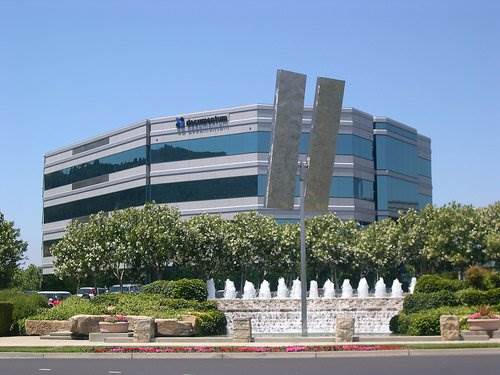NEWS ANALYSIS: John Newton fears new owner will promise customers new investment in their products but that the product lines eventually will wither away.
Like any good parent, John Newton simply wants the best future for his corporate offspring, Documentum, but he’s quite worried about it right about now.
When someone starts a company, especially a first venture, it occupies a special place in the entrepreneur’s heart for life. Documentum is that first-born child that Newton and Howard Shao started up way back in 1990, when the first George Bush was in the White House and the internet was a mere gleam in the eye of some key scientists.
Newton believes that his pioneering enterprise content management platform company is headed for extinction under the realm of its new owner, Canada-based OpenText.
“There’s a pattern with which OpenText operates,” Newton said. “It’s very much the Computer Associates (CA) model: They bring it [new IP] in, they do minimum maintenance on the product, and then they kind of milk the installed base. Then you provide your other products as an upsell, or move them on to the new products.
“There’s no reason to think that this will be any different. What they’re really doing is buying marketshare, which I assume is the most important thing for them.”
So because OpenText isn’t invested in the long-term development of Documentum products, Newton contends, the Canadian company is highly likely to not invest in the company’s products and simply let all that IP stagnate. Documentum’s loyal customers from over the years will be the poorer as a result, he believes.
There’s Quite a Bit of History Here
Let’s set the table here for a minute. EMC acquired Documentum for $1.7 billion in December 2003, at which point Newton cashed out. The Documentum platform was part of EMC’s Enterprise Content Division (ECD) business unit, one of EMC’s four operating divisions.
Thirteen years later, Dell then bought EMC — the deal officially closed Sept. 7. Five days later, on Sept. 12, Documentum was acquired from Dell EMC by Opentext, which specializes in enterprise content management — it also sells a number of other IT products and services — for $1.6 billion.
The deal is the latest in a string of acquisitions OpenText has made in recent months as it aims to become the world’s No. 1 enterprise information management (EIM) provider, led by ECM and information lifecycle management.
OpenText is a $1.9 billion company with 8,600 employees and more than 100,000 customers. The company has become a collector of new IP, no question about it. In April, the company spent about $170 million to buy certain customer experience software and services assets from HP Inc., including a digital experience management platform for web content management, a digital asset management offering and an intelligent workforce optimization product.
In June, OpenText bought customer communications management technologies from HP Enterprise, including Exstream, Output Management, TeleForm and LiquidOffice for everything from process automation to document delivery offerings.
The deal for Dell EMC’s ECD will enable OpenText to help its customers accelerate their adoption of a full digital business environment, CEO Mark Barrenechea said. OpenText, whose software helps businesses manage huge volumes of data, will grow its range of industry offerings for particular verticals, expand its customer base and extend its reach into new regions.
OpenText will integrate the software, services and employees of Dell EMC’s ECD unit [mainly Documentum] into the company, and the two companies announced plans to negotiate a strategic business partnership to expand offerings to their customers.
Documentum Co-Founder Publishes Reaction to Last Week’s Deal
Newton, who with partner John Powell founded open source ECM provider Alfresco in 2005, published a response to the acquisition in his company’s corporate blog. Here are some key points of that essay:
“It is rather poignant to see the ultimate fate of Documentum, the company that Howard Shao and I started over 25 years ago. … I don’t think this is the outcome that anyone in Documentum hoped for when it was acquired by EMC in 2003. I didn’t think it would happen, because it is a really big pill for OpenText to swallow and they had to raise quite a lot of debt to do it. It’s not a big surprise, but it is sad.
“I left Documentum a couple of years before the acquisition by EMC, but I was still very aware of what was going on inside the company after that. I think the intention then was the same that OpenText is trying to do with this new acquisition: to become the largest player in the Enterprise Content Management space or as OpenText has tried to re-label it, the Information Management space. The market shares of the two companies seemingly would make it larger than IBM, and OpenText continues on its traditional growth path of becoming the Computer Associates of the content space.
“Over the past decade or so, OpenText has not grown organically but through acquiring smaller ECM vendors that have lost their way. They have done the same in the Business Process Management space as well. … The pattern is generally the same: Acquire companies that have overlapping product sets with customers that can move to the core OpenText technology, but give assurances to those customers that their products will be invested in. Just it doesn’t quite work out that way. Like a CA, the product lines wither away.
“Documentum during that same time evolved in a very different way. Under the leadership of Dave DeWalt who took over in 2001, Documentum acquired complementary adjacent technologies to upsell to their customers. Even after the acquisition by EMC, Documentum seemed to have a degree of autonomy (no pun intended) in working within a larger hardware business. That changed when the EMC hardware side took control, DeWalt left and it’s been a slow decline ever since.
‘Brave Attempt’ at Project Horizon
“There was a brave attempt to revitalize the brand through Project Horizon, now named Documentum LEAP. That, however, took years to see the light of day. Even so, it is an entirely new product that have very little connection to Documentum other than being a content platform. When Dell took over EMC, no project was going to save Documentum, and it fell on the auction block. Too little, too late.
“The outcome looks inevitable. Like so many OpenText acquisitions, there will be disingenuous assurances of investment. One has to believe that OpenText’s management thinks that they have the better of the two products between OpenText and Documentum.
“Just look who took over whom and who has the bigger market share. This will lead to OpenText to try and force customers onto that platform or just let the Documentum customer base attrite and collect maintenance in the process. Even worse, those Documentum customers will find a suboptimal product for their needs in OpenText when they find out how the innards of OpenText works–a very different model and a not terribly fast repository engine. Just ask any Documentum salesperson or senior executive who is fighting it day in and day out.
“It is just a sad outcome for those of us who built Documentum all those years ago. Although I sold off my stock a long time ago, because I knew nothing about the hardware business of EMC, doesn’t mean I don’t care. Even though just about every single person I ever knew in Documentum is gone, doesn’t mean I don’t care. It has been fun competing with what was once a competitive company. Now it is just time to help pick up the pieces.”
OpenText’s Response
eWEEK connected with Barrenechea to obtain his take on Newton’s blog piece. It was a simple, to-the-point discussion.
“I’m reminded of a scene out of [the AMC television show] ‘Madmen,’ ” Barrenechea told eWEEK. “Draper is in an elevator, and one of his employees is criticizing him — really criticizing him — for his pitch that day, because in the presentation, Draper left out the other salesman’s alternative idea. Draper looks over and says, ‘They bought it, didn’t they?’ And the ad executive says: ‘I feel really bad for you.’
“Draper looks back at him at says: ‘I don’t think about you at all.’
“I don’t even think about them,” Barrenechea said with a laugh.
eWEEK Senior Editor Jeff Burt contributed to this story.







